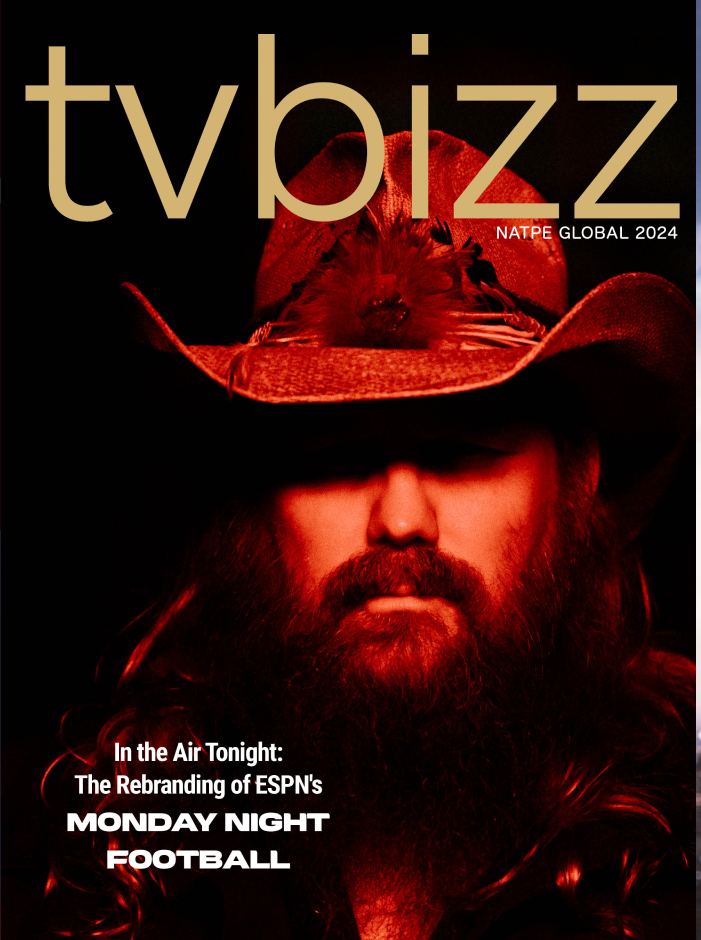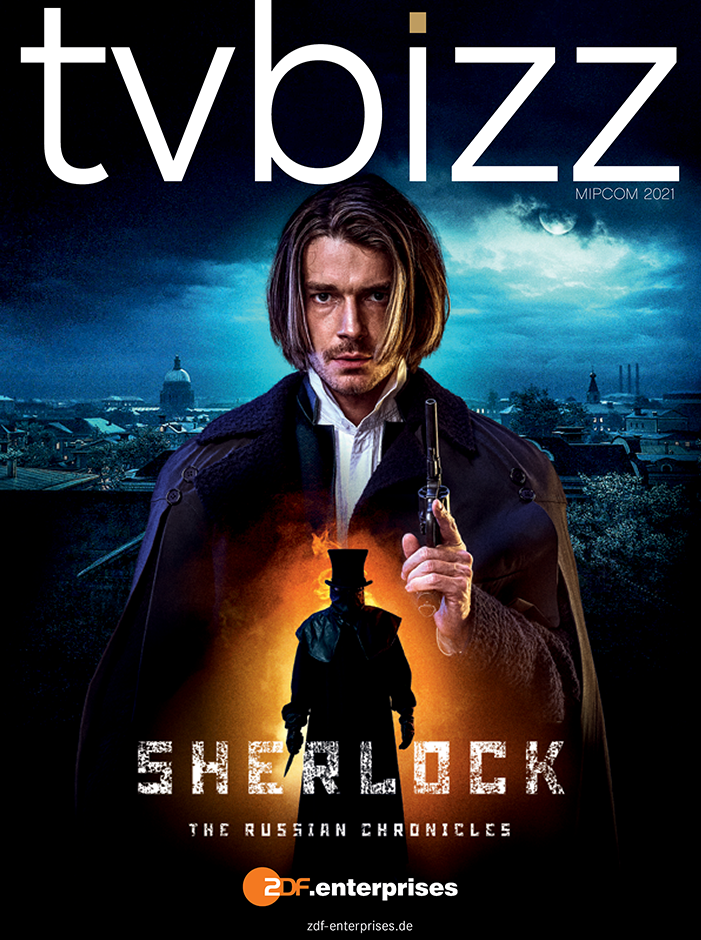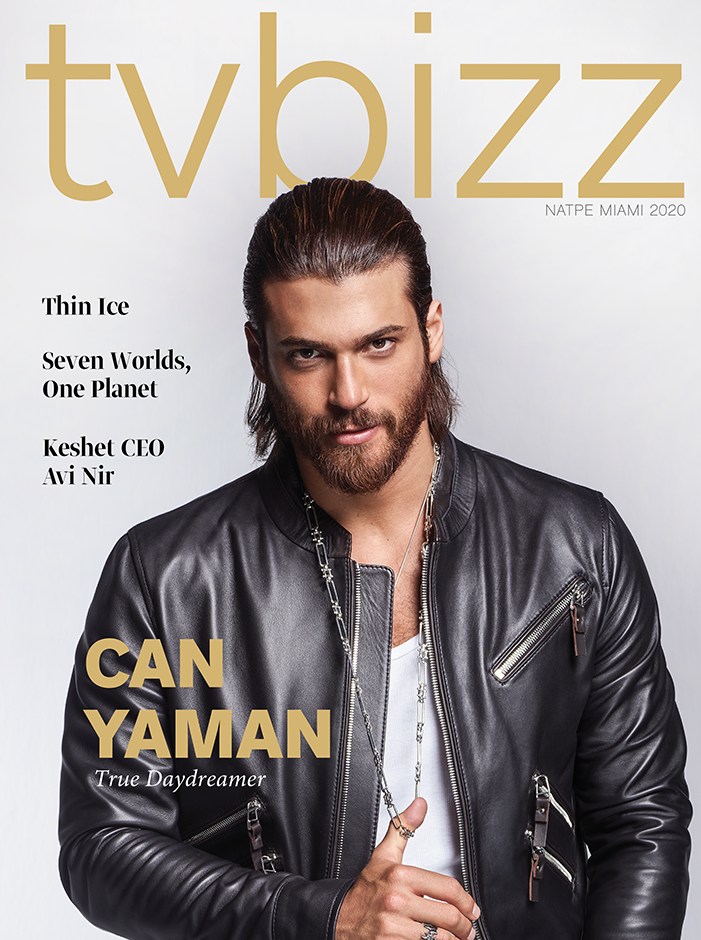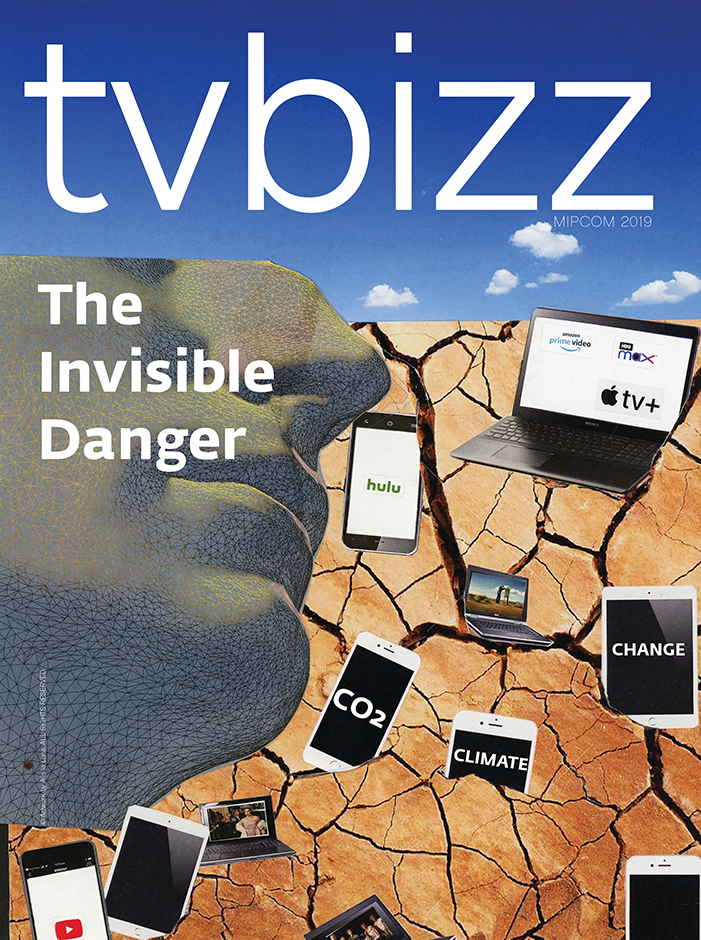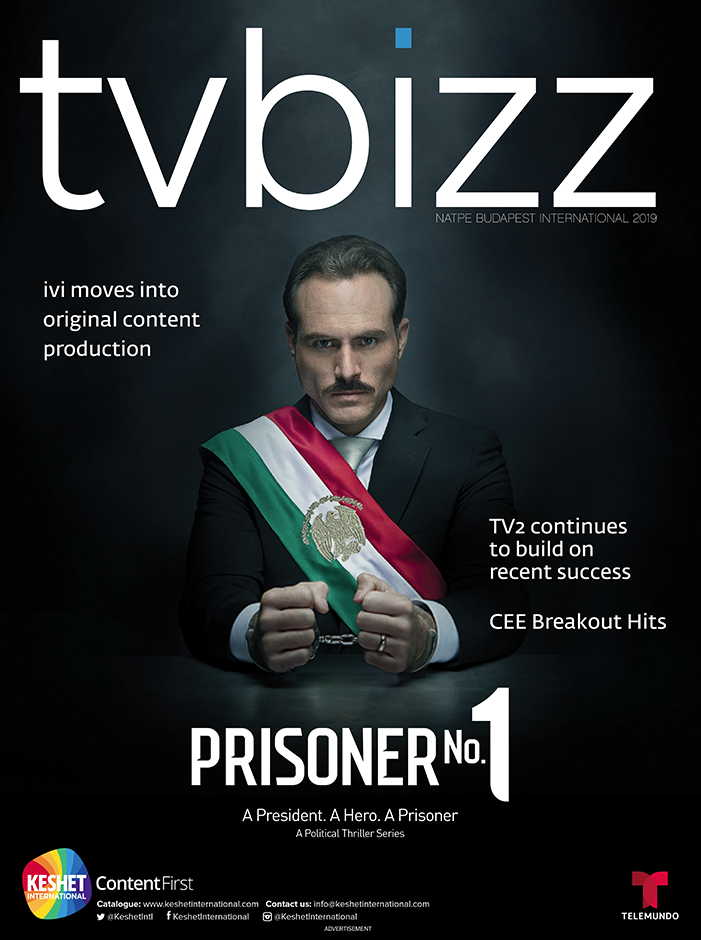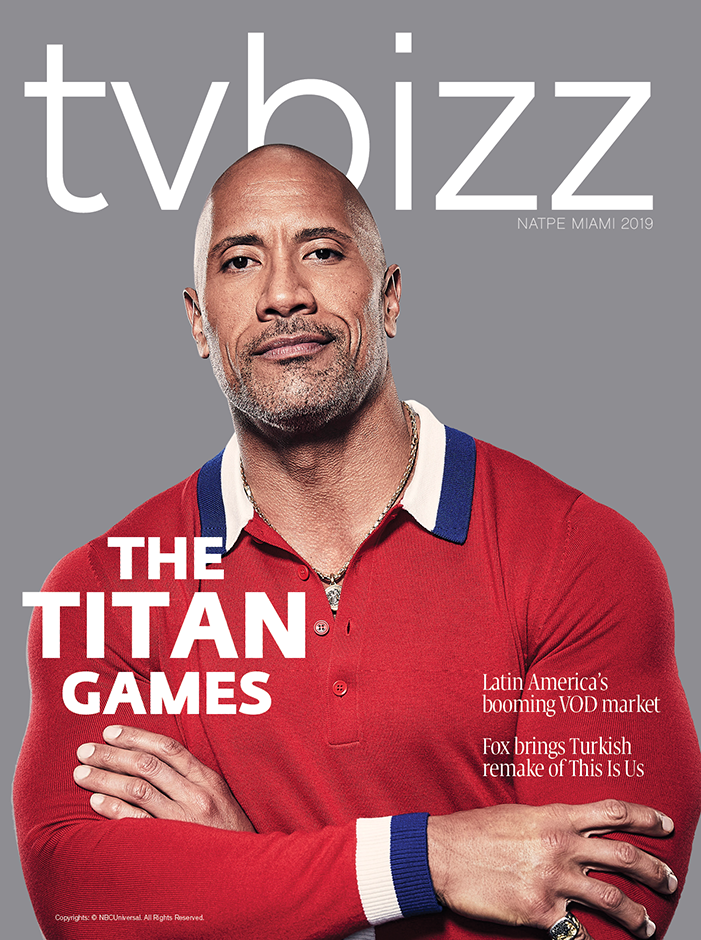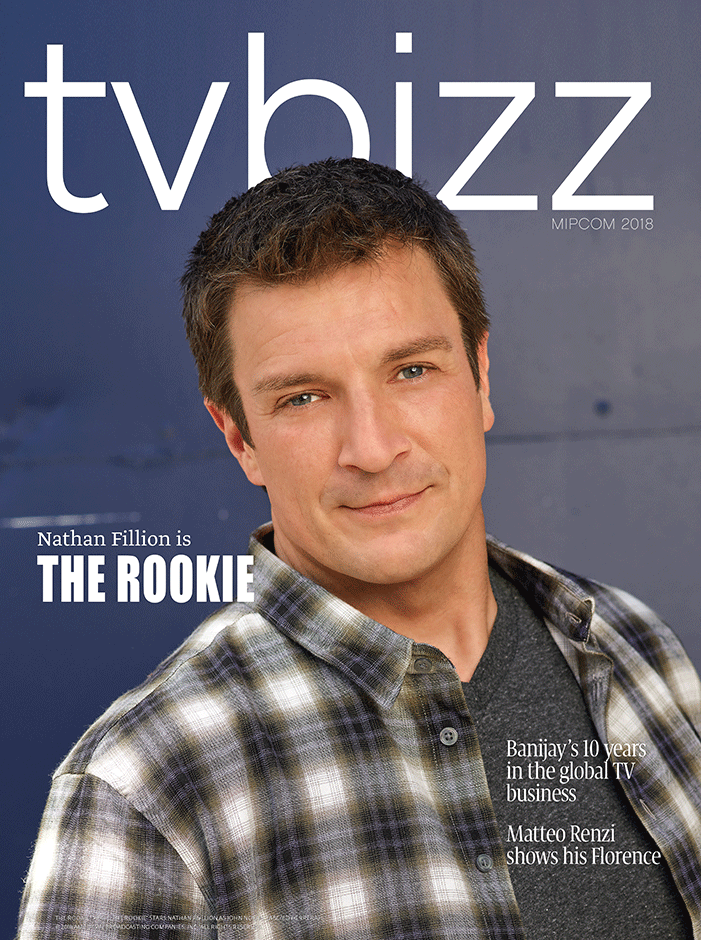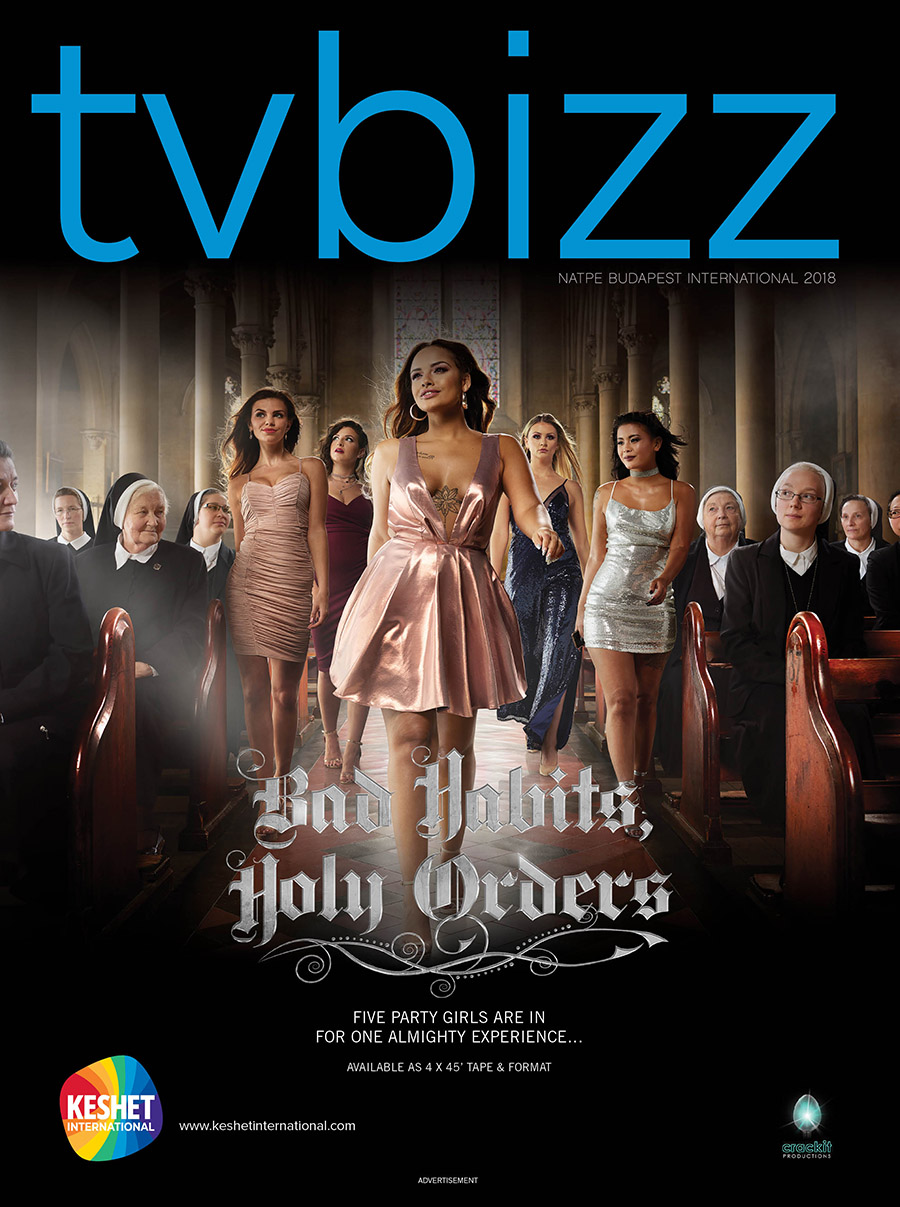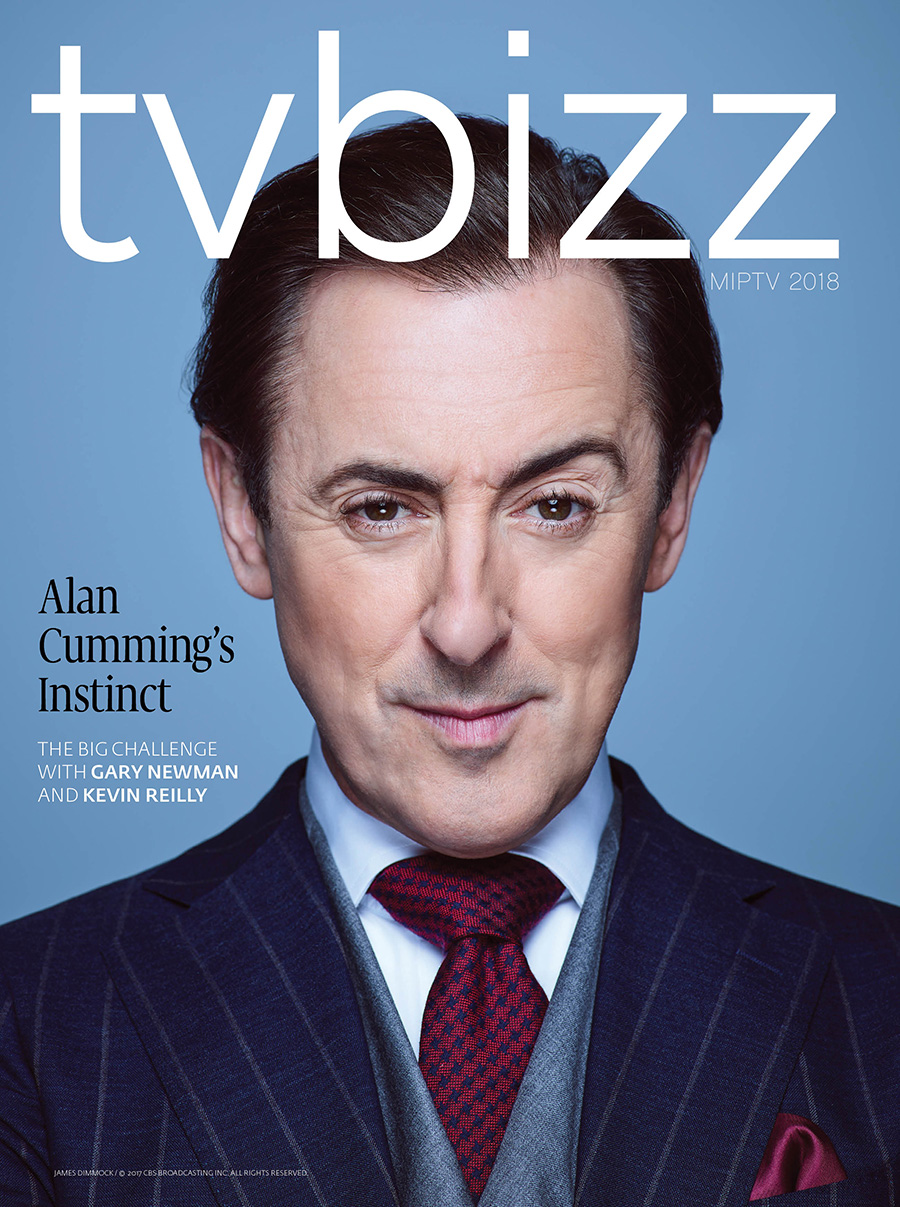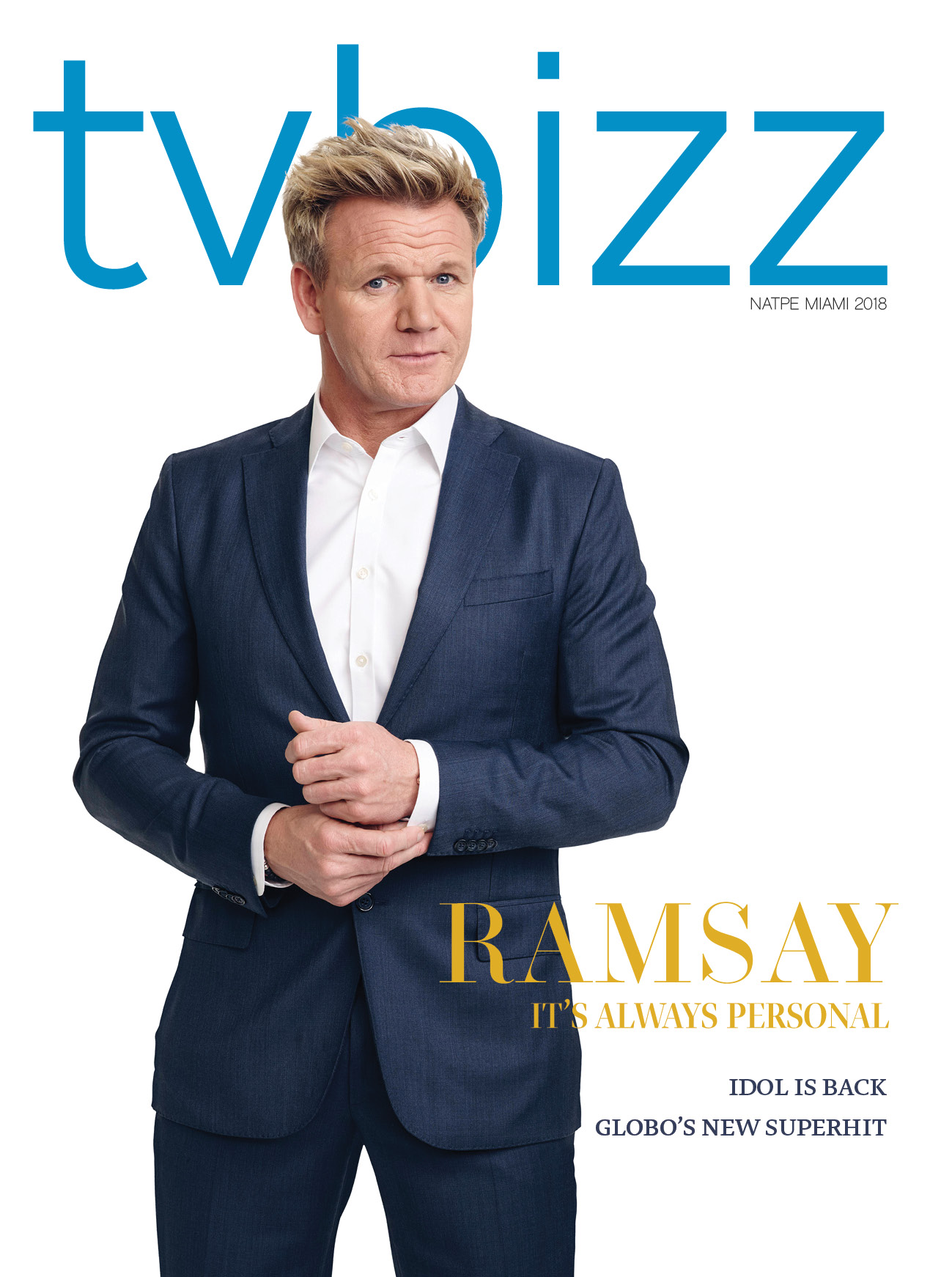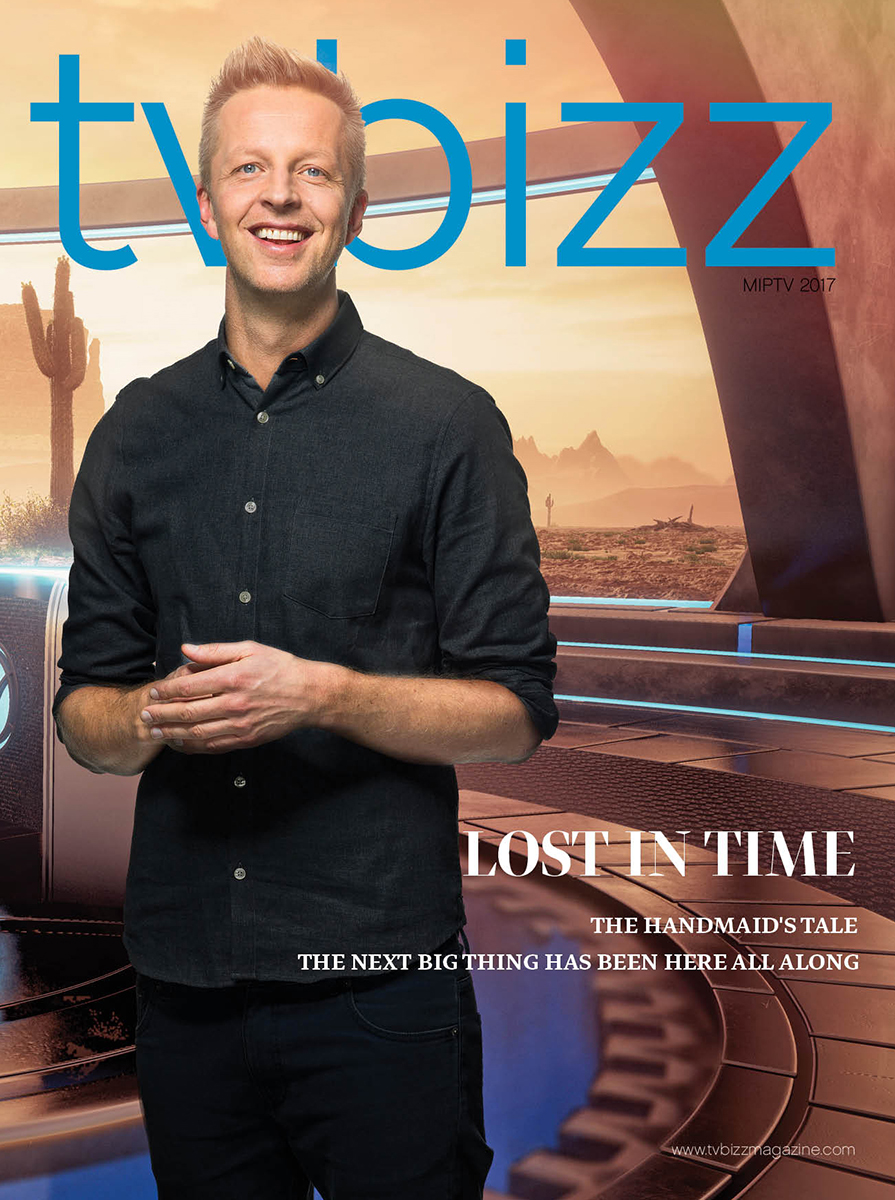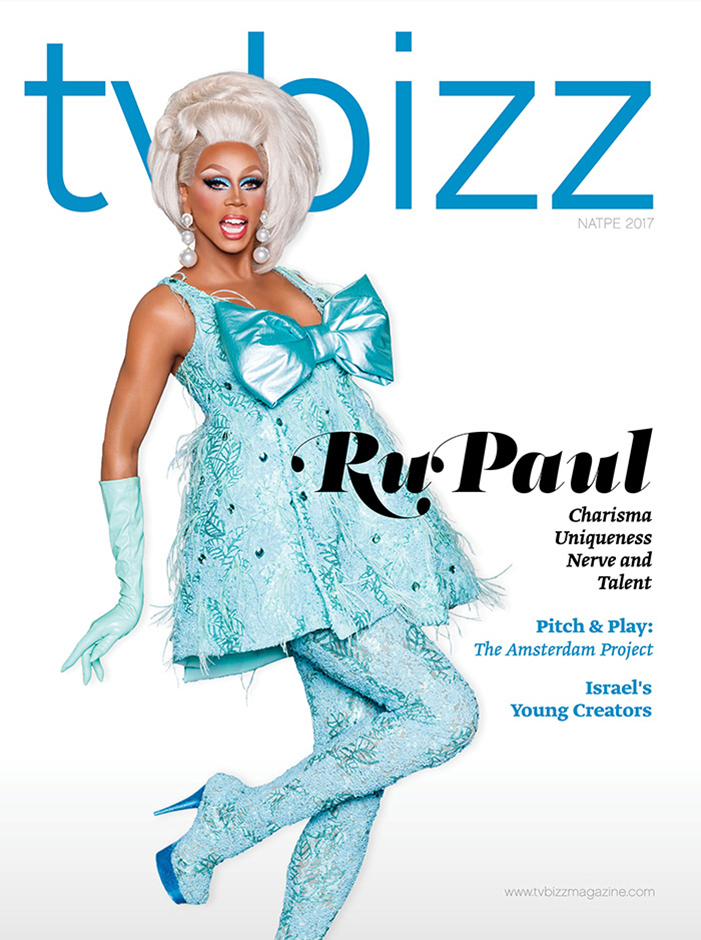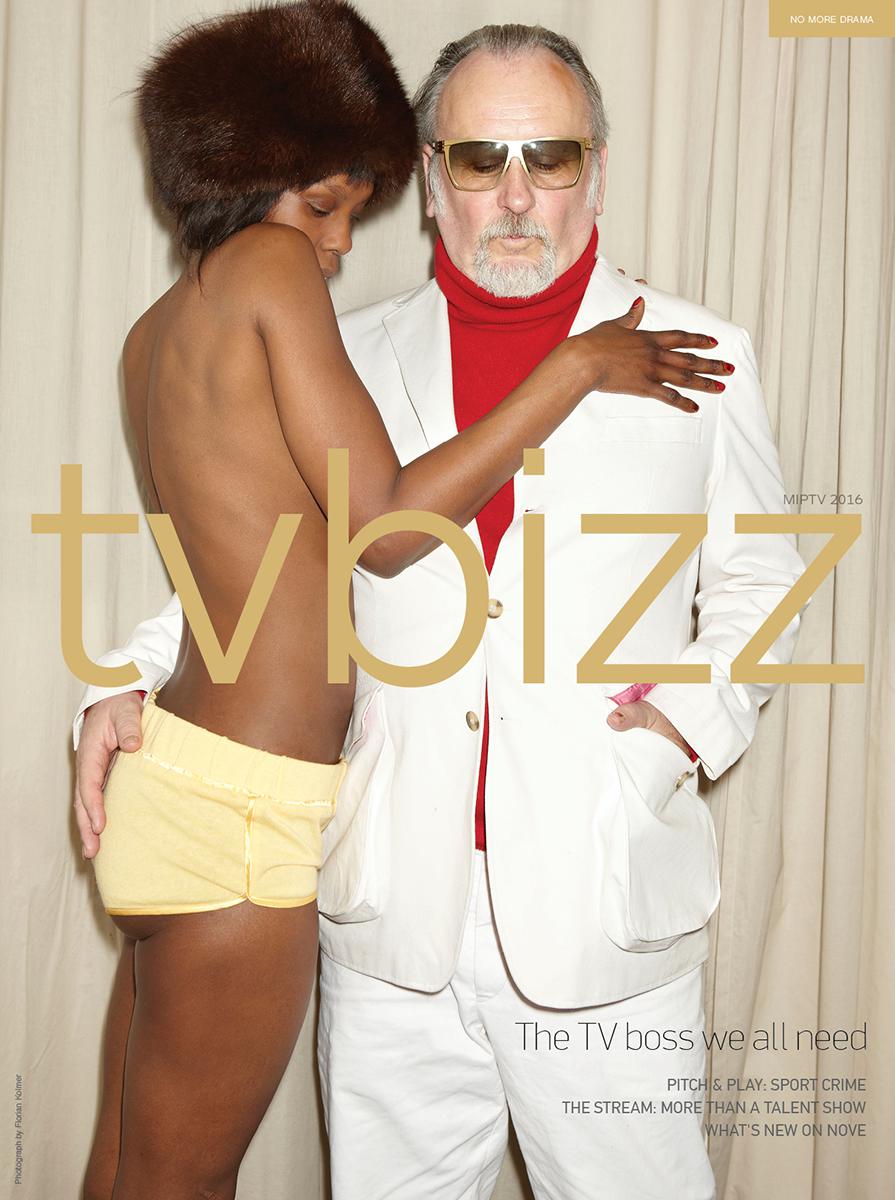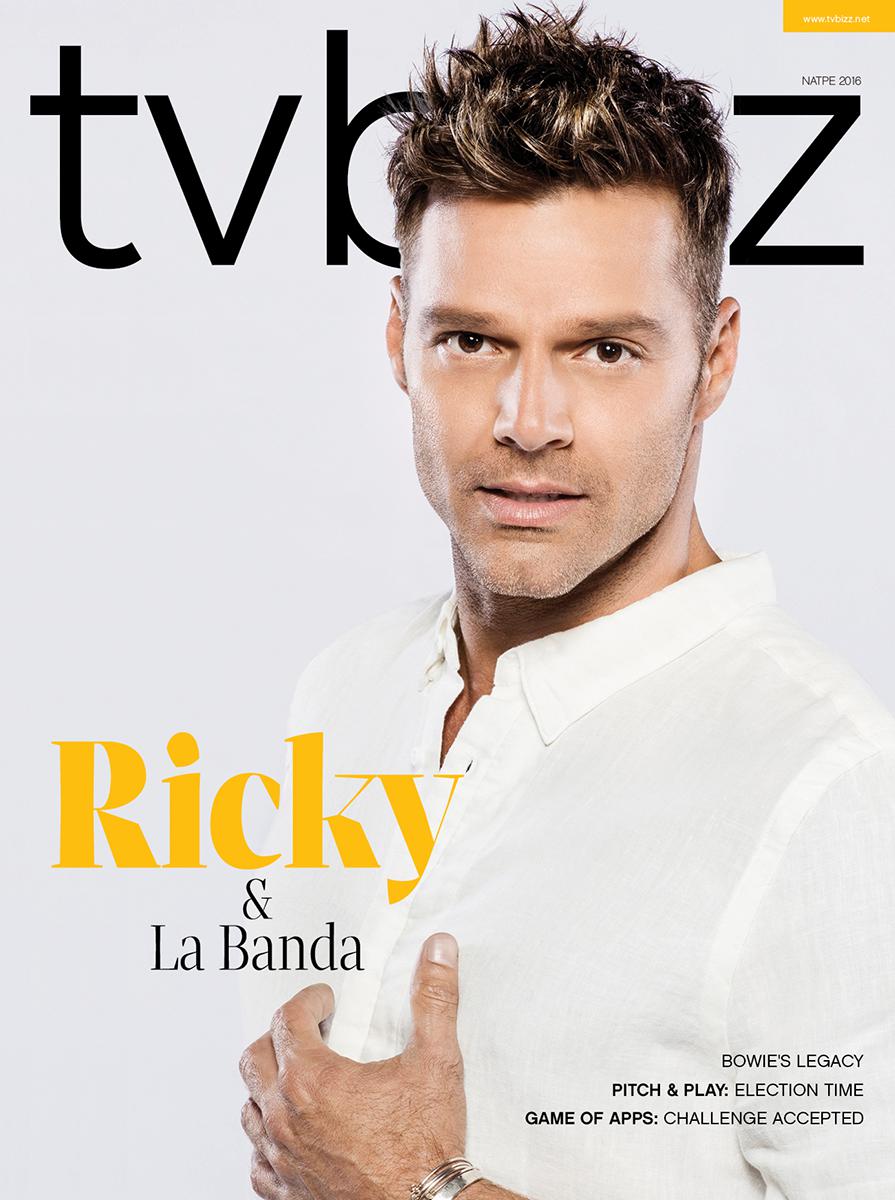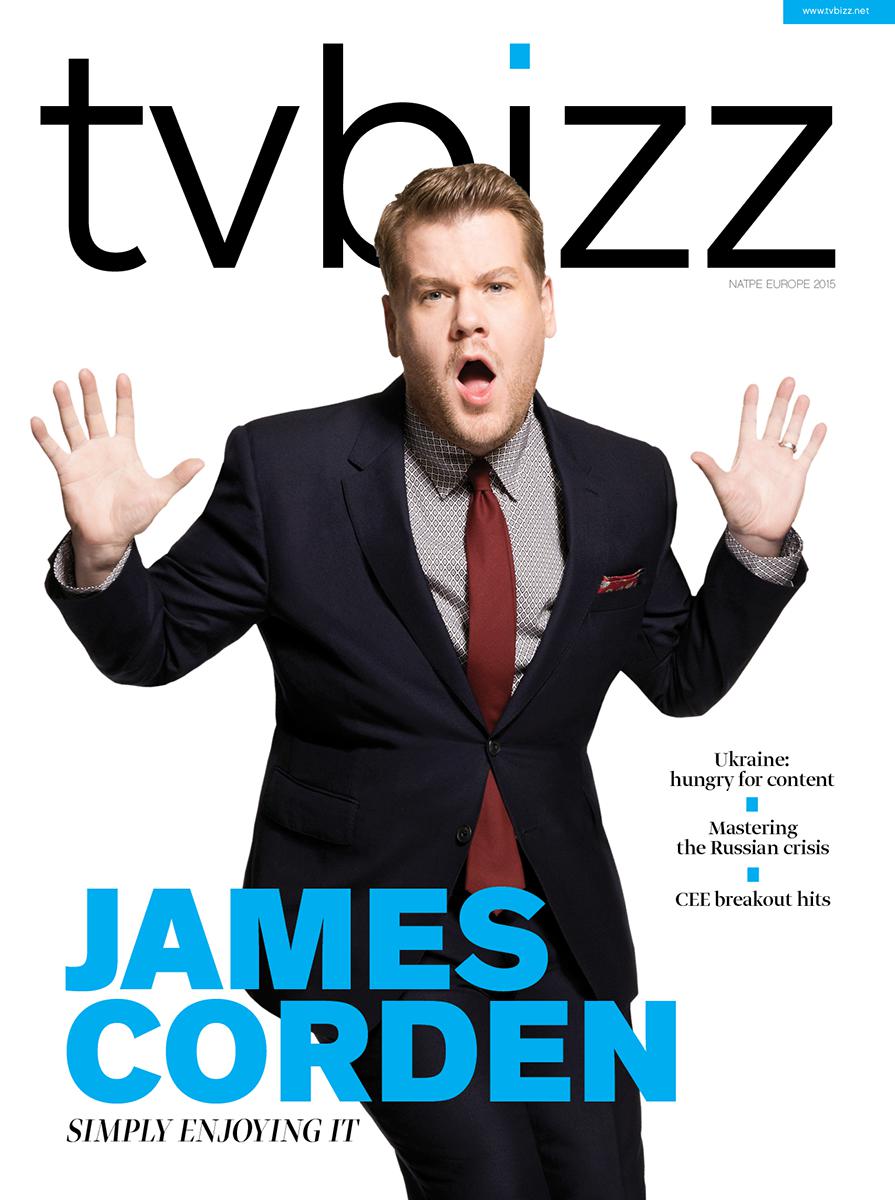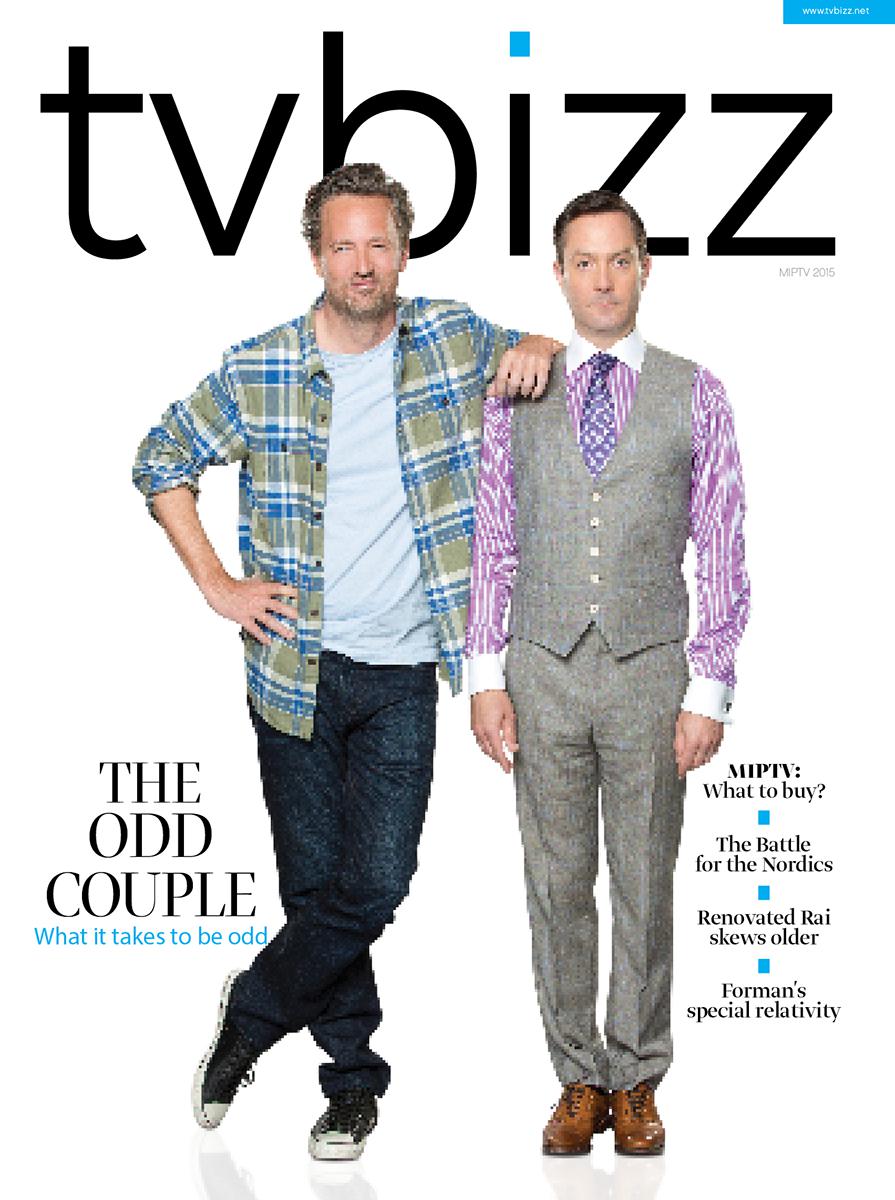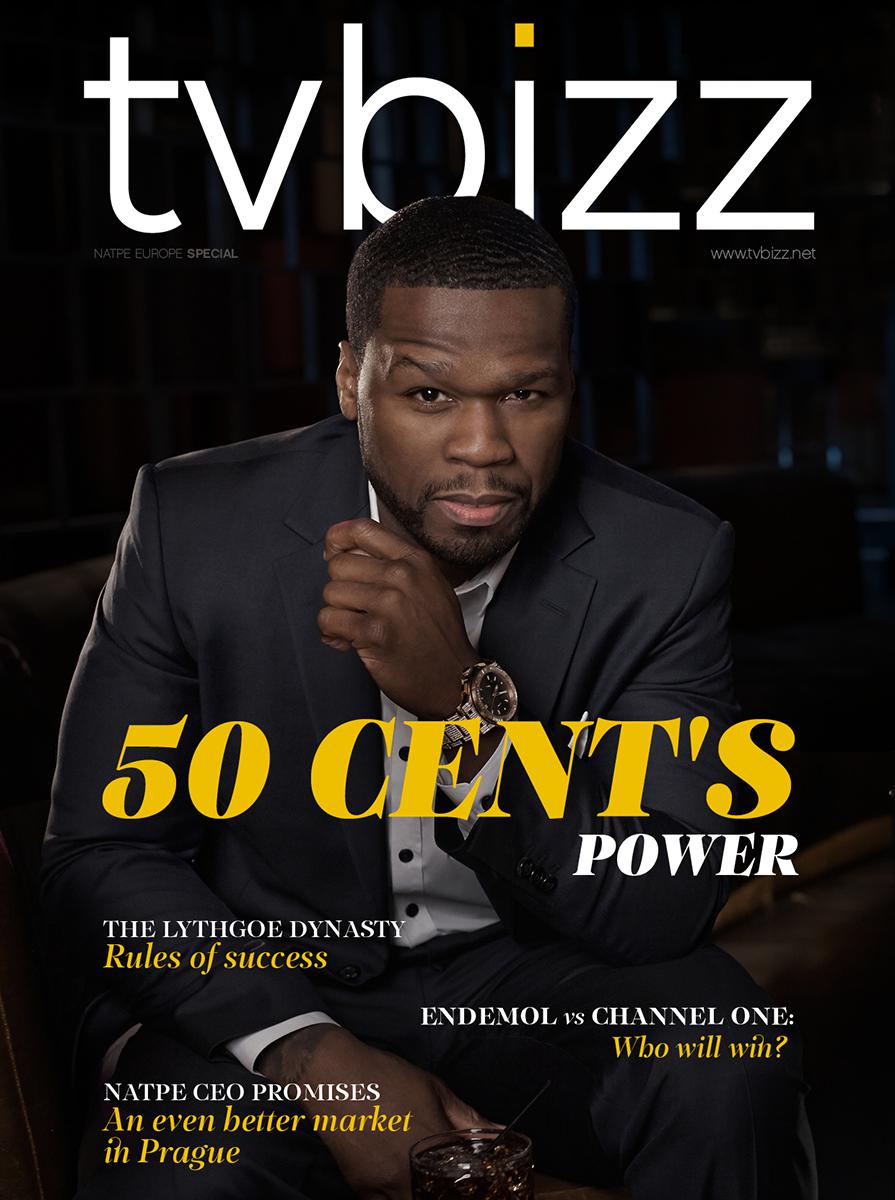The State of Flux with Kevin Reilly
Stanislav Kimchev attended this year’s INTV 2018 Conference in Jerusalem looking for answers as to what the future brings for the television business, as people watch less TV, end their cable subscriptions and move to streaming services. Certainly, not everyone would be able to offer a concrete perspective and analysis on the ongoing process, and certainly Kevin Reilly, President TBS and TNT, is one of those big execs who are not only engaged in what he calls “State of Flux”, but is also one of the people who will be defining the new rules and successful business models for the major US networks in these challenging times.

Good Behavior
Kevin, you are the president of TNT and TBS and you have previously worked for NBC and Fox. What are the main differences between working for a broadcast and cable network in the era of Peak TV? How have streaming services changed the landscape in the past few years?
Really, if you boil it down, it comes down to managing intellectual property and ideas, and that is our business and how that IP, how those ideas, how that talent gets bundled together and distributed is slightly different in each of those platforms. But ultimately, it’s a very competitive marketplace - the consumer is winning, not only with our domestic ideas and formats, but internationally we know that more and more markets are producing really high caliber, very compelling material, that is very relatable to local market but also can travel internationally.
So, the marketplace is very, very robust. Cable, historically, has been a very strong business. Broadcast in US, which was always the top and biggest by definition, broadcast has been more and more under stress and is now, as a business model, struggling much more than cable – really, really struggling from streaming business, even though they’ve tried to adapt to those businesses. Cable has also hit its own maturity at this moment in time but is a little bit more flexible as a business model to adapt into those new areas, which is what we’ve done at Turner. We‘ve gotten into digital distribution and understanding data and moved into those businesses, but in a nutshell, it’s about delivering quality ideas, quality productions in the marketplace in a way that they can consume them.
Do you think traditional networks will be able to handle the increasing competition and budgets of Netflix, Google, Amazon, Facebook and what do they need to change in order to keep their appeal to digital audiences?
Yes, if they adapt. Like all things, if you don’t adapt, you don’t succeed. And we’re at a moment of time where adaptation is critical. I think those businesses that stay within the traditional confines of linear delivery either because they’re not adapting fast enough or they don’t have the resources to do it, they will be under great stress and probably go away, in my opinion. Those that are adapting, like our businesses, will in fact be here and will be a part of different delivery models.
And what makes TBS and TNT different from the rest?
We have been a very profitable and successful business for a very long time. We’re one of the best-known cable channels in the US, but that doesn’t mean we’re one of the best loved. We’ve been working on the love part, and that’s what’s been happening in the last three years, just trying to get more love attached to what we call brand awareness. Lots of people may say “I know that jacket”, but do I love it or is it just the cheapest jacket? Sometimes what people like to say is “I get it at a price and I love it.” We have a lot of resources, we have very high awareness, and we are very good at what we do, so these things together allow us to have choices to make in this competitive environment.
From your perspective and experience, is changing the audience’s perception easier or more difficult than before?
Harder, only by virtue of so many things. Early in my career, I got involved in the FX network at a very early stage where it did not have that much identity or really not any quality programming and after that there was a complete change of perception, which ultimately really affected the entire cable business. We are doing actually three times as much of that success now at our networks. What I did back at FX with only one show, now I ultimately put on more shows, which people are out of their minds about - but we’re seeing the audience in our studies respond, “the love factor” goes up. We call it “brand definity” meaning people know it, and now like it or love it, so with a little over three year’s time, we’re actually moving in here.
So, you can get there with a big investment, like the one we’re making. You can’t get there with one show. I mean, AMC got there with one show, they did it multiple times, but The Walking Dead was the show that made it huge, and now they’re down to one show and taking nothing away from the job they’ve done, but they do not have the resources, I think, to really figure out the next job.

You bet big on The Alienist, the most expensive series on TNT. What is the biggest challenge when attracting talent? Is the budget the only thing that counts?
No, but if you don’t do that and they believe they can get paid better somewhere else, or they think the production can be better somewhere else, then you know, everyone says “I like you very much”. But we executed a very high-quality production, we marketed it and succeeded, now when someone comes in the door next time, they don’t say “Well, we’re not sure you guys can do this”, they say “Okay, you did that, now I just have to believe this is the right one for this project”. So, it gets a little easier each time.
As Chief Creative Officer, you chair the Turner Entertainment Programming Council. What are the main challenges in today’s TV programming and what makes TV exciting in the modern media landscape?
Well, all of those words just say I’m involved in a portfolio of ideas and intellectual property and talent. Those particular channels are focused at different market segments, so really a big part of today is that we began in every country with a big, broad offer and there was not much choice; whether you liked it or not, you’d watch it because we had three things and that was the choice. Now that you have more and more choice. What may be great to you maybe very different to me. We have different services, we gear towards different segments, directing the content and the resources to the right audience is also another part of it, so that’s really what we do.
You have greenlighted many projects in your career. What is your most dear project to date?
I get asked that every time and I never answer. The ones that came were the right ones at the right time, so I go back and I could never pick one.
How will the latest big M&A deals change the US and the international TV market?
Quite drastically, but we’re actually just in a state of flux right now. We’re in the middle of a pending big merger with the telecom company AT&T. Disney with Fox. All of these companies have international businesses and components and international will be a very big growth business, because most of these markets have nowhere to go but up, others are more reformed but are now getting specialized. So that growth, working collaboratively either with our businesses directly or with other businesses we may collaborate or buy, is going to be really good for the international marketplace. Better than ever before.
What’s the future of e-sports, can e-sports programming have mass appeal?
At a younger demo, it won’t have mass appeal as a television property necessarily, but this is huge, millions and millions worldwide - this is a global sport. So, we’re attracted to it, this is not a U.S. phenomenon, this is global. It strangely may end up being one of the most, if not THE most, international sport, if you think about it. Because yes, soccer is, but on a regular basis these competitions are international. It’s not like - come together for the World Cup one time, or the Olympics, this is a regular league, it’s always international teams that are competing. I think it’s an amazing world. You see a lot of people now say “I used to be a gamer”, or “I don’t really do it anymore, but now I have a son and he loves it” and all of a sudden you have a multigeneration of people who say “this is how I bond with my kids”. And that creates even more interest and a bigger fanbase.
Really, if you boil it down, it comes down to managing intellectual property and ideas, and that is our business and how that IP, how those ideas, how that talent gets bundled together and distributed is slightly different in each of those platforms. But ultimately, it’s a very competitive marketplace - the consumer is winning, not only with our domestic ideas and formats, but internationally we know that more and more markets are producing really high caliber, very compelling material, that is very relatable to local market but also can travel internationally.
So, the marketplace is very, very robust. Cable, historically, has been a very strong business. Broadcast in US, which was always the top and biggest by definition, broadcast has been more and more under stress and is now, as a business model, struggling much more than cable – really, really struggling from streaming business, even though they’ve tried to adapt to those businesses. Cable has also hit its own maturity at this moment in time but is a little bit more flexible as a business model to adapt into those new areas, which is what we’ve done at Turner. We‘ve gotten into digital distribution and understanding data and moved into those businesses, but in a nutshell, it’s about delivering quality ideas, quality productions in the marketplace in a way that they can consume them.
Do you think traditional networks will be able to handle the increasing competition and budgets of Netflix, Google, Amazon, Facebook and what do they need to change in order to keep their appeal to digital audiences?
Yes, if they adapt. Like all things, if you don’t adapt, you don’t succeed. And we’re at a moment of time where adaptation is critical. I think those businesses that stay within the traditional confines of linear delivery either because they’re not adapting fast enough or they don’t have the resources to do it, they will be under great stress and probably go away, in my opinion. Those that are adapting, like our businesses, will in fact be here and will be a part of different delivery models.
And what makes TBS and TNT different from the rest?
We have been a very profitable and successful business for a very long time. We’re one of the best-known cable channels in the US, but that doesn’t mean we’re one of the best loved. We’ve been working on the love part, and that’s what’s been happening in the last three years, just trying to get more love attached to what we call brand awareness. Lots of people may say “I know that jacket”, but do I love it or is it just the cheapest jacket? Sometimes what people like to say is “I get it at a price and I love it.” We have a lot of resources, we have very high awareness, and we are very good at what we do, so these things together allow us to have choices to make in this competitive environment.
From your perspective and experience, is changing the audience’s perception easier or more difficult than before?
Harder, only by virtue of so many things. Early in my career, I got involved in the FX network at a very early stage where it did not have that much identity or really not any quality programming and after that there was a complete change of perception, which ultimately really affected the entire cable business. We are doing actually three times as much of that success now at our networks. What I did back at FX with only one show, now I ultimately put on more shows, which people are out of their minds about - but we’re seeing the audience in our studies respond, “the love factor” goes up. We call it “brand definity” meaning people know it, and now like it or love it, so with a little over three year’s time, we’re actually moving in here.
So, you can get there with a big investment, like the one we’re making. You can’t get there with one show. I mean, AMC got there with one show, they did it multiple times, but The Walking Dead was the show that made it huge, and now they’re down to one show and taking nothing away from the job they’ve done, but they do not have the resources, I think, to really figure out the next job.

The Alienist
You bet big on The Alienist, the most expensive series on TNT. What is the biggest challenge when attracting talent? Is the budget the only thing that counts?
No, but if you don’t do that and they believe they can get paid better somewhere else, or they think the production can be better somewhere else, then you know, everyone says “I like you very much”. But we executed a very high-quality production, we marketed it and succeeded, now when someone comes in the door next time, they don’t say “Well, we’re not sure you guys can do this”, they say “Okay, you did that, now I just have to believe this is the right one for this project”. So, it gets a little easier each time.
As Chief Creative Officer, you chair the Turner Entertainment Programming Council. What are the main challenges in today’s TV programming and what makes TV exciting in the modern media landscape?
Well, all of those words just say I’m involved in a portfolio of ideas and intellectual property and talent. Those particular channels are focused at different market segments, so really a big part of today is that we began in every country with a big, broad offer and there was not much choice; whether you liked it or not, you’d watch it because we had three things and that was the choice. Now that you have more and more choice. What may be great to you maybe very different to me. We have different services, we gear towards different segments, directing the content and the resources to the right audience is also another part of it, so that’s really what we do.
You have greenlighted many projects in your career. What is your most dear project to date?
I get asked that every time and I never answer. The ones that came were the right ones at the right time, so I go back and I could never pick one.
How will the latest big M&A deals change the US and the international TV market?
Quite drastically, but we’re actually just in a state of flux right now. We’re in the middle of a pending big merger with the telecom company AT&T. Disney with Fox. All of these companies have international businesses and components and international will be a very big growth business, because most of these markets have nowhere to go but up, others are more reformed but are now getting specialized. So that growth, working collaboratively either with our businesses directly or with other businesses we may collaborate or buy, is going to be really good for the international marketplace. Better than ever before.
What’s the future of e-sports, can e-sports programming have mass appeal?
At a younger demo, it won’t have mass appeal as a television property necessarily, but this is huge, millions and millions worldwide - this is a global sport. So, we’re attracted to it, this is not a U.S. phenomenon, this is global. It strangely may end up being one of the most, if not THE most, international sport, if you think about it. Because yes, soccer is, but on a regular basis these competitions are international. It’s not like - come together for the World Cup one time, or the Olympics, this is a regular league, it’s always international teams that are competing. I think it’s an amazing world. You see a lot of people now say “I used to be a gamer”, or “I don’t really do it anymore, but now I have a son and he loves it” and all of a sudden you have a multigeneration of people who say “this is how I bond with my kids”. And that creates even more interest and a bigger fanbase.





